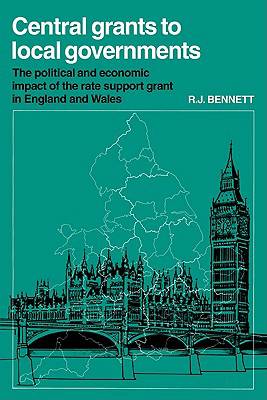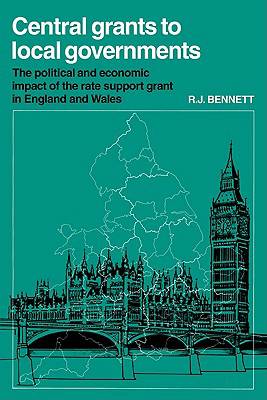
- Afhalen na 1 uur in een winkel met voorraad
- Gratis thuislevering in België vanaf € 30
- Ruim aanbod met 7 miljoen producten
- Afhalen na 1 uur in een winkel met voorraad
- Gratis thuislevering in België vanaf € 30
- Ruim aanbod met 7 miljoen producten
Zoeken
Central Grants to Local Governments
The Political and Economic Impact of the Rate Support Grant in England and Wales
R J Bennett
€ 67,95
+ 135 punten
Omschrijving
Central grants to local governments are a major aspect of public policy in all western economies. This book has two main aims: first, it seeks to relate central grants to the overall structure of taxes and expenditures of the economy as a whole, and second, it draws together for the first time a major set of empirical evidence on one major grant programme standing at £12,000 million in 1982, the Rate Support Grant in England and Wales. The thesis of the book is developed in three parts. Part one examines the objectives of central grant programmes: namely, need, resource and cost equalisation. Part two of the book develops a detailed empirical analysis of the Rate Support Grant and highlights those areas which have been relatively advantaged and disadvantaged in grant allocation. In part three the discussion is extended to an examination of the full interrelation of central grants with local taxes and expenditures. This leads to the main conclusions of the book, which are developed as a set of suggested reforms to local revenues in Britain.
Specificaties
Betrokkenen
- Auteur(s):
- Uitgeverij:
Inhoud
- Aantal bladzijden:
- 364
- Taal:
- Engels
- Reeks:
- Reeksnummer:
- nr. 17
Eigenschappen
- Productcode (EAN):
- 9780521112697
- Verschijningsdatum:
- 4/06/2009
- Uitvoering:
- Paperback
- Formaat:
- Trade paperback (VS)
- Afmetingen:
- 152 mm x 229 mm
- Gewicht:
- 530 g

Alleen bij Standaard Boekhandel
+ 135 punten op je klantenkaart van Standaard Boekhandel
Beoordelingen
We publiceren alleen reviews die voldoen aan de voorwaarden voor reviews. Bekijk onze voorwaarden voor reviews.











